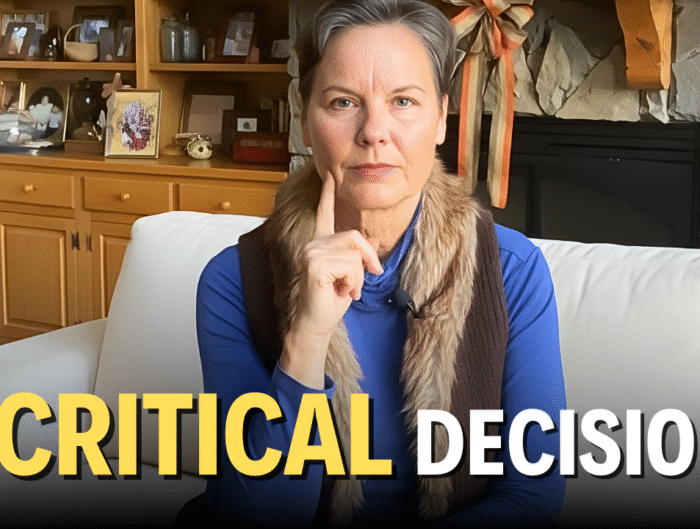I was warned at age 16 that I had hypoglycemia or low blood sugar, and my diet needed to change. Hearing this news was devastating to this junk food queen. I loved junk foods and all the high carbs. It was my life, but I was also looking to feel better and I knew things needed to change. My doctor at Duke University even warned me that if things didn’t change, I may not be able to have children one day. He had my attention. That was the first time I thought about my blood sugar levels. And I started to get serious about what I ate and what I could do to balance my blood sugar.
My Duke University doctor eventually told me that I have a genetic predisposition for low blood sugar which later in life could manifest in type 2 diabetes. That time came after age 50, shortly after my father passed from Alzheimer’s disease. I woke up several mornings in a row feeling weak and nauseated. I thought I had a stomach virus, but after several days, my husband insisted that I go to the doctor to check it out. Imagine the shock when my doctor told me I was in a diabetic state. Then he encouraged me saying, “Ginny, I think you can manage this with diet and lifestyle.” He, too, was a type 2 diabetic who was managing it with lifestyle changes. He sent me to classes at the hospital that helped me to get back on top. Medication would be brought out only if these lifestyle changes did not work.
Well, that was 17 years ago and I’ve been managing my type 2 diabetes without medication for some time now. And today, I’m going to share with you eight tips for balancing blood sugar naturally that have worked for me.
- Eat a nutrient-dense, low-carb diet with high fiber. Yes, I’m talking about fruits (minimal of course), vegetables, nuts, seeds, beans, legumes, herbs, spices, and whole grains with no more than 15 grams of carbs at a time. Half of your plate should be from vegetables and leafy greens. Healthy plant-based and lean animal proteins should comprise 1/4th of your plate and healthy fats in limited amounts. Protein should always be paired with carbs. Proteins and healthy fats both slow the release of sugar from the gut to the bloodstream. Fiber found in plants and whole grains also slows down the sugar into the bloodstream. What I’m describing here is a more Mediterranean diet. In addition, we must reduce our added sugar intake. Why? Because 50% of American adults are diabetic or prediabetic and up to 93% of adults have some type of metabolic dysfunction. And the average American eats 18-23 teaspoons of sugar each day which amounts to 64 pounds of added sugar each year. Yes, we absolutely must reduce our sugar intake.
- Exercise daily. Movement and exercise increase insulin sensitivity allowing your muscles to use the insulin more efficiently. This decreases blood sugar and may decrease your need for medications. Simply, regular exercise boosts your metabolism so you can burn off sugars. According to the Mayo Clinic, when you remain active with movement, your muscles use blood sugar for energy. Experts recommend 150 minutes of moderate exercise such as walking or 75 minutes of vigorous exercise weekly. This is one of the reasons I exercise daily. As Dr. Sonya Khan of MD Anderson says, “If you’re choosing the right foods and exercise regularly, you’re likely to maintain good control of your blood sugar.”
- Maintain a healthy weight. One thing my doctor warned me about was gaining weight. “You’ll have more difficulty controlling your blood sugar if you gain weight,” he said. Boy was he right. For me, just a 15-pound gain weight and my blood sugar begins that roller coaster ride of highs and lows. Check with your doctor or a BMI chart to see if you are within the healthy ranges for your height and frame.
- Make sleep a priority. Inadequate sleep raises both blood sugar and cortisol levels. Yes, a lack of sleep can impact your body’s ability to keep your blood sugar balanced. And remember that deep sleep is when your body heals and regenerates damaged cells and that includes your pancreas.
- Manage stress. When I was first diagnosed with type 2 diabetes, my integrative medical doctor, Dr. Connie Ross strongly believed that the stress of losing my father greatly contributed to my diabetic state. “Stress causes cortisol to go up, and when cortisol goes up, blood sugar follows,” she said. Now when I go through a stressful period, I realize I must be even more diligent with my exercise, sleep, and diet to help manage my blood sugar. Deep breathing, music, and other relaxation techniques can also help. But what helps this gal relax the most is usually a walk with my husband.
- Intermittent fasting. Several doctors including my own family physician recommend intermittent fasting for their patients with type 2 diabetes. It may be hard to believe, but it helps to balance blood sugar. This means that if I eat dinner at 6 pm, I don’t eat until 10 am or 12 noon the next day. I usually do this 2 – 3 times a week. For more information, check out my video on “Six Benefits of Intermittent Fasting and Autophagy” which will be referenced below. This is not recommended for type 1 diabetics. Check with your doctor and see if it may help you.
- Supplementation. It was my family physician, Dr. Mitch Diillman, who recommended that I take a chromium supplement to help balance my blood sugar. I now take 500 mcg of chromium picolinate by Thorne. In a book by the Health Sciences Research Institute, I discovered another supplement designed to help folks with type 2 diabetes. It’s called Syntra5 for Blood Sugar Support. It contains 200 mcg of chromium, HCA (hydroxycitric acid), gymnema sylvestre extract, banaba leaf extract, and cinnamon extract which all help insulin resistance and balance blood sugar levels. In a recent interview I did with Dr. David Brownstein, he said, “Insulin receptors need iodine to work correctly.” Due to his research, I’d begun using iodine/iodide mixture to help prevent my breast cancer from returning. Now I realize it’s also helping my blood sugar, too. I use either Iodoral or Lugol’s drops.
- Proper hydration. Staying hydrated helps to stabilize blood sugars. Dehydration can affect your blood sugar levels. Every cell, organ, and system in your body needs adequate hydration to work properly and that includes your pancreas. Water is the best thing to drink as it adds no carbs to your carb count, or you can use hydrating drinks made up of mainly water such as herbal teas, lemon water, and limited amounts of decaffeinated coffee or tea. Just a word of caution. Caffeine also raises blood sugar so be careful.
You want to keep your blood sugar levels within normal ranges. Your entire body is impacted when your blood sugar levels are too high or too low. Your immune system is also impacted by blood sugar levels that are too high or too low. To protect your immune system, your blood sugar levels must be balanced. It’s a bit like Goldilocks –not too high, not too low, but right in between to enable your body and immune system to work as God intended.
Do you have issues with blood sugar control? If so, what do you do to help balance your Blood sugar?
View this message on YouTube:
Eight Tips for Balancing Your Blood Sugar Naturally
Related videos:
Six Benefits of Intermittent Fasting and Autophagy
For Your Health,
Ginny
 Ginny Dent Brant is a speaker and writer who grew up in the halls of power in Washington, DC. She has battled cancer, ministered around the world, and served on the front lines of American culture as a counselor, educator, wellness advocate, and adjunct professor. Brant’s award-winning book, Finding True Freedom: From the White House to the World, was endorsed by Chuck Colson and featured in many TV and media interviews. Unleash Your God-Given Healing: Eight Steps to Prevent and Survive Cancer was released in May 2020 after her journey with cancer and was recently awarded the First Place Golden Scrolls Award for Memoirs, a finalist in Serious Writers Book of the Decade, and Second Place in both Selah Awards for Memoirs and Director’s Choice Award for Nonfiction at the Blue Ridge Mountain Christian Writer’s Conference. It recently received the Christian Authors Network’s (CAN) Gold Award for Excellence in Marketing for reaching 62.5 million people with a message of cancer prevention and survival. It was written with commentary from an oncologist and was featured on CBN’s Healthy Living Show, Atlanta Live, and CTN’s Homekeepers along with over 75 media outlets. Learn more and cancer and wellness prevention blog and book information at www.ginnybrant.com. Ginny is on YouTube
Ginny Dent Brant is a speaker and writer who grew up in the halls of power in Washington, DC. She has battled cancer, ministered around the world, and served on the front lines of American culture as a counselor, educator, wellness advocate, and adjunct professor. Brant’s award-winning book, Finding True Freedom: From the White House to the World, was endorsed by Chuck Colson and featured in many TV and media interviews. Unleash Your God-Given Healing: Eight Steps to Prevent and Survive Cancer was released in May 2020 after her journey with cancer and was recently awarded the First Place Golden Scrolls Award for Memoirs, a finalist in Serious Writers Book of the Decade, and Second Place in both Selah Awards for Memoirs and Director’s Choice Award for Nonfiction at the Blue Ridge Mountain Christian Writer’s Conference. It recently received the Christian Authors Network’s (CAN) Gold Award for Excellence in Marketing for reaching 62.5 million people with a message of cancer prevention and survival. It was written with commentary from an oncologist and was featured on CBN’s Healthy Living Show, Atlanta Live, and CTN’s Homekeepers along with over 75 media outlets. Learn more and cancer and wellness prevention blog and book information at www.ginnybrant.com. Ginny is on YouTube
Link to buy book at Unleash Your God-given Healing
Click to sign up to take Conquering Cancer Course
Ginny is a cancer coach. Make an appointment to meet with her:




